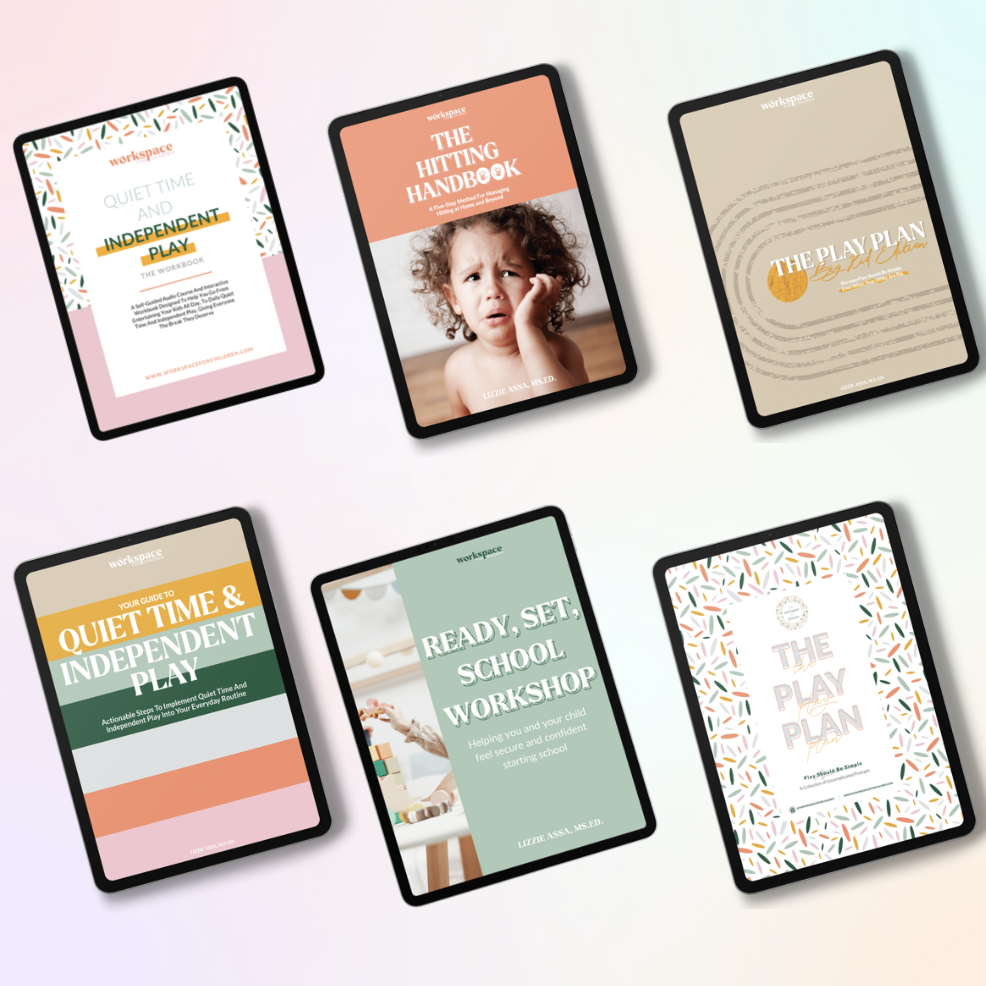Handling 'That's Not Fair!' Moments: Effective Parenting Strategies
/Is “That’s not fair!” a common theme in your house? Read this.
Read MoreIs “That’s not fair!” a common theme in your house? Read this.
Read MoreAn icy cold activity that won’t cost a dime and will entertain a very young child equally as well as a grade-schooler.
Read MoreDiscover effective strategies to boost your toddler's conversational skills and put an end to the endless 'why?' questions. Learn how to encourage your child to communicate effectively and develop their language abilities with simple and practical tips.
Read MoreLearn how to support your child in the turn-taking process and build their confidence in sharing.
Read MoreMother's Day is just around the corner, and it's the perfect opportunity to show your mom how much you care. This gift guide is full of thoughtful and practical ideas for the perfect gift for your mom, from clothing and apparel to skin care and more.
Read MoreAll things play dough: Recipe, Where to Buy, Why it is a great tool for learning
Read MoreYou just heard a crash from the playroom and your heart stops. He was working SO hard on that building. Cue the tears and tantrums of frustration…
Read MoreShow your appreciation for the hardworking teachers in your life with these teacher appreciation items. From personalized gifts to practical classroom supplies, these items are sure to make any teacher feel valued and supported. Whether you're a parent, student, or fellow educator, this list has something for everyone looking to show their gratitude for the incredible work that teachers do.
Read MoreThree easy activities you can pull off when you are both exhausted and need a break.
Read MoreSimple activity for the whole family to enjoy. Takes only minutes to set up.
Read MoreDo you find yourself constantly having to intervene in fights between your kids? The constant arguing and bickering can be incredibly frustrating and draining. But what if we told you there was a better way?
Read MoreCreating with stickers, toddler hacks, and a peek at our collection.
Read MoreDoes your child throw toys and supplies instead of playing? Read for exactly how handle it. Plus, my favorite toddler art supplies.
Read MoreSometimes when we ask questions while our kids are busy at play, we unintentionally insert our own ideas and the magic of independent play doesn't fully come to life. Here’s what you can do instead!
Read MoreGetting messy is vital to healthy child development. As the weather gets colder, and we can’t take the mess outside, I want to make sure you feel prepared to get messy inside AND deal with the aftermath.
Read MoreTraveling with kids can certainly be an adventure, but it's usually not the relaxing vacation we dream of. Try these 4 tips to make your trip smooth sailing!
Read More
It’s only natural to want to encourage and support our children in everything they do. However, when it comes to art, it can be challenging to know what to say when our kids experience frustration.
"My four-year-old melts down when she makes a mistake on her drawing. What do I say?”
Whether it's a four-year-old who melts down when their drawing doesn't come out the way they wanted or an older child who is struggling to get the hang of a new technique, it can be tempting to step in and minimize it with the following phrases,
“It looks great! What are you talking about?’
“Here, let me show you how…”
“Stop being so hard on yourself, kid!”

If you are a parent or a teacher, I bet you already know that when you’ve tried that approach, you are met with more frustration, crumpled paper, and scowls.
So, what can you say instead? Here are a few suggestions that may help your child work through their frustrations:
"That didn't come out the way you wanted it to."
"I remember learning to draw and it was tricky for me too."
"You were wishing it looked different."

By acknowledging your child's feelings and helping them put words to what they're experiencing, you can provide them with the emotional support they need to work through their frustrations. Kids just want us to understand how they're feeling inside. They don't necessarily need us to tell them that their drawing looks great or to show them how to draw it. You'll see them work through their frustrations much more productively by simply giving them their feelings and words to match.
Helping your child overcome frustration is about understanding their emotions and providing them with the support they need to work through their challenges. Taking a supportive and understanding approach will give your child the tools they need to grow.
Have you ever wondered which tiles are worth it? Do they work together? Which ones should you buy?

These two phrases will help you and your child through difficult situations.
Read MoreAll our favorite Vday books in one place.
Read More
If you want to create a home that is filled with play and creativity, the key is to let your child know how much you value the time and effort they spent playing.